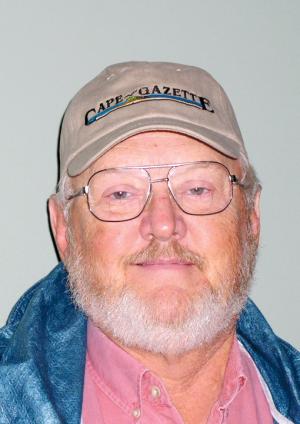An informational hearing was held Sept. 17 in the Bethany Beach library, where DNREC Soil and Water Conservation staff explained the current plans for dredging Massey’s Ditch. I didn’t make a count, but I thought the turnout was pretty good.
There were several charts in the front of the room with detailed maps of exactly where the dredging will take place and where the dredge spoils will be used. The only area to be dredged will be Massey’s Ditch. None of the other shallow areas in Indian River or Rehoboth bays will be affected. This includes the shoaling in front of some of the trailer parks on Long Neck. The suggestion was made that the owners of those parks could contact the dredging company and find out if they have time to attack that particular shoal.
The dredge spoils will be used to replenish the beach north of Indian River Inlet. A floating booster pump will be placed behind Burton Island where the pipes from the dredge will meet and be moved across the marsh to the north beach. The pipe will use a culvert under Route 1 and come out under the inlet bridge. From there, the spoils will be distributed east of the current beach to improve its width.
When the project is complete, Massey’s Ditch will be six and a half feet deep at mean low water and one hundred feet wide. The estimate is 100,000 cubic yards of material will be removed.
Currently the project is in the final engineering stage and will soon go out to bid. Once the bids are in, a winner will be picked and the timing of the project is from January to March 2019. The estimated cost is between $3 million and $4.5 million.
Those who are familiar with funding for dredging, since the federal government stopped maintaining state waters, see this as a victory. This is a two-pronged project. The dredge spoils, which can be a big problem when trying to find a suitable location to deposit them, will be used for shoreline improvement. The Ditch gets dredged and the beach gets wider. That’s a win-win situation.
Sen. Gerald Hocker and Rep. Ronald Gray both attended the hearing. They have been at the forefront of acquiring funding for dredging and had considerable input to this project.
There are many other waterways in Delaware that need dredging. The problem is, as it always is, money. Right now the only dedicated fund for waterway improvement is the extra money that has been raised by doubling the boat registration fee. That has produced $1.5 million a year, which is exactly half of the money required to keep up with all the work that needs to be done.
I am sure the gas tax brings in at least that much from boaters filling their tanks, but convincing the Department of Transportation to give that money to Soil and Water Conservation is all but impossible. Perhaps if DelDOT gets their 10-cent gas tax increase, our good senators and representatives could bargain a measly one-and-a-half million a year out of them to give us a steady flow of money to maintain our waterways.
Hunting seasons
Hunters are already in the field, as archery season opened Sept. 1. Resident Canada goose season is also open. If we ever get some cool weather, I hope to scout out a few public hunting locations before muzzleloader season opens.
What I would like to see are some photos of successful hunters with the game they harvested. I get more fishing photos than I can use, but seldom get any hunting-related photos.
As always, I like to see young folks or ladies, but will be happy with grizzled old men. Please think about the photo before you take it. No beer cans, cigars or cigarettes, and please keep the blood down to a minimum.
I would also like to hear about your hunt club and what they do for young people or those with physical handicaps. This would include keeping hunting areas open and any conservation projects you or your club may be involved with.
With the loss of the News Journal’s hunting column this is, as far as I know, the only hunting venue left in Delaware. I want to get the word out, but I need your help since I receive very little hunting information from any source with the exception of Ducks Unlimited and the Safari Club.
Hunting license sales have fallen since the Canada geese flew away, but I know there are avid hunters left in Delaware. Help me help you and keep me informed as to what’s going on in my home state.






















































